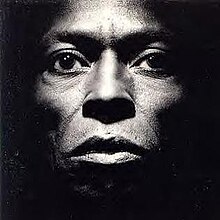Tutu (album)
| Tutu | ||||||||||
|---|---|---|---|---|---|---|---|---|---|---|

Cover photograph by Irving Penn
|
||||||||||
| Studio album by Miles Davis | ||||||||||
| Released | September 1986 | |||||||||
| Recorded | Capitol Studios, Los Angeles; Clinton Recording, New York City; Le Gonks, West Hollywood | |||||||||
| Genre | Pop jazz,funk, R&Belectronic pop | |||||||||
| Length | 42:05 | |||||||||
| Label | Warner Bros. | |||||||||
| Producer | Marcus Miller, Tommy LiPuma | |||||||||
| Miles Davis chronology | ||||||||||
|
||||||||||
| Professional ratings | |
|---|---|
| Review scores | |
| Source | Rating |
| AllMusic | |
| Encyclopedia of Popular Music | |
| The Guardian | |
| Jazzwise | |
| MusicHound Jazz | 4/5 |
| The New Zealand Herald | 4/5 |
| The Penguin Guide to Jazz | |
| Record Collector | |
| The Rolling Stone Album Guide | |
| The Village Voice | B+ |
Tutu is an album by American jazz trumpeter Miles Davis, released in 1986 by Warner Bros. Records. It was recorded primarily at Capitol Studios in Los Angeles and Clinton Recording in New York, except the song "Backyard Ritual", which was recorded at Le Gonks in West Hollywood. Davis received the 1987 Best Jazz Instrumental Performance, Soloist Grammy Award for his performance on Tutu.
Originally planned as a collaboration with pop singer/songwriter Prince, Davis ultimately worked with bassist/multi-instrumentalist Marcus Miller. Miller wrote and arranged all the songs, except "Tomaas" (co-written by Davis), "Backyard Ritual" (by keyboardist George Duke), and "Perfect Way" (by pop group Scritti Politti). The music is strongly inspired by mid-1980s R&B and funk, with heavy use of synthesizers, sequencers and drum machines.
As indicated in the notes accompanying the album, Tutu was produced by Tommy LiPuma and Marcus Miller, with the exception of "Backyard Ritual", which was co-produced by Duke and LiPuma.
The album is named in tribute to Archbishop Desmond Tutu, the first black Anglican Archbishop of Cape Town, South Africa. The track "Full Nelson" refers to South African politician Nelson Mandela. Davis's much earlier 1947 composition, "Half Nelson", was named after bebop jazz bassist Nelson Boyd.
...
Wikipedia
